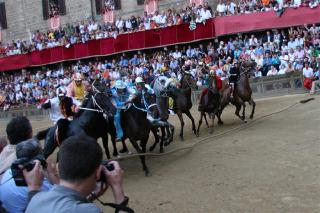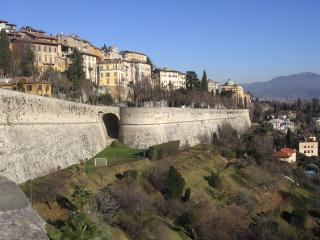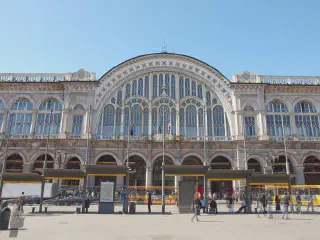Bentornati
- Oggi è Mercoledì, quattro ottobre duemilaventitré.
- Come state? How are you (all)?
- Come stai? How are you (in particular)?
- (Come sta/stanno? formal)
- Bene, grazie. E tu?
- Così così. So-so.
- Non c’è male. Not bad.
- Oggi, non sto molto bene. I’m not very well today.
- Anch`io! Me too!
Città - un po` più difficile
Firenze (Florence) Siena Bergamo Cinque Terre Torino (Turin)First Conjugation Verbs
Parlare to speak
Stem + ‘are’. Keep the stem, change the ending
- parl-o I speak
- parl-i You (singular) speak
- parl-a He/she speaks
- parl-iamo We speak
- parl-ate You (plural) speak
- parl-ano They speak
Personal pronouns - I, you, he, she etc. - usually omitted except for emphasis or clarity
- io parl-o
- tu parl-i
- lui, lei parl-a
- noi parl-iamo
- voi parl-ate
- loro parl-ano
Giocare to play
If stem ends in ‘c’, then ‘h’ is added whenever the ending starts with ‘i’ (to keep the hard c).
- gioc-o
- gioc-hi
- gioc-a
- gioc-hiamo
- gioc-ate
- gioc-ano
Mangiare to eat
If stem ends in ‘i’, then that ‘i’ is removed when the ending also starts with ‘i’.
- mangi-o
- mang-i
- mangi-a
- mang-iamo
- mangi-ate
- mangi-ano
For example.
- Abito a Firenze. E tu, dove abiti?
- Mi chiamo Roberto. E tu, come ti chiami?
- Studio architettura. E tu, che cosa studi?
- Ho trente anni. E tu, quanti anni hai? Irregular verb ‘avere’
- Noi lavoriamo ma voi giocate.
- Lui mangia e lei beva.
Maschile e Femminile
- Carlo, Antonio, Marco, Lorenzo… masculine ending in general
- Isabella, Maria, Sofia, Claudia… feminine ending in general
- Andrea, Luca, Nicola are masculine names




